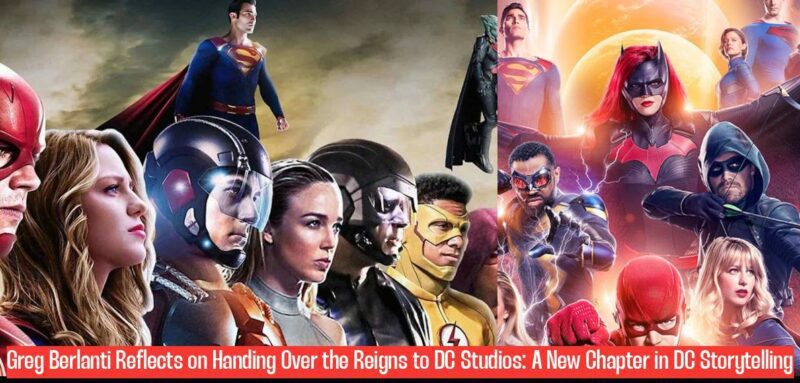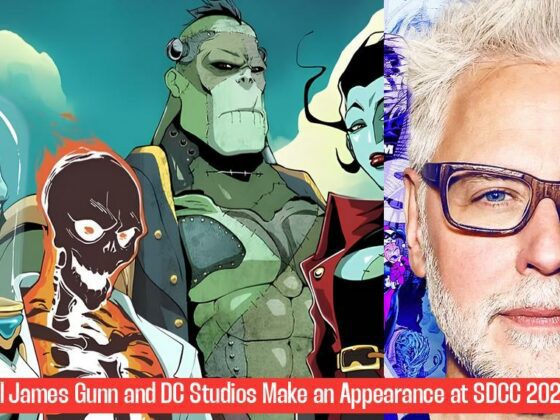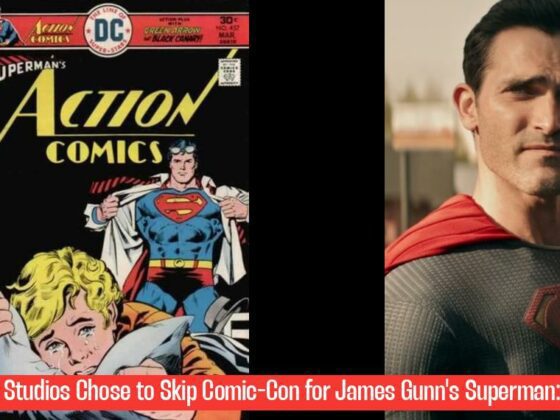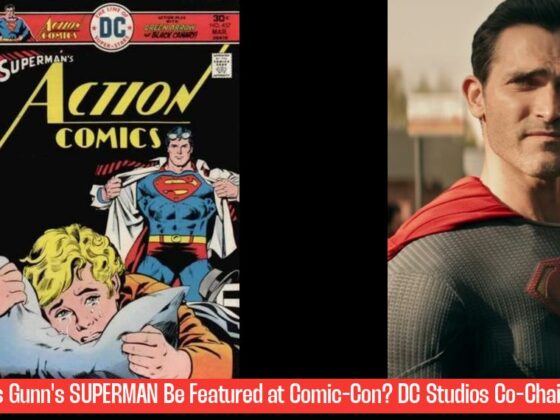Arrowverse Executive Producer Greg Berlanti On How It Feels To Pass The Torch To DC Studios
Greg Berlanti, the mastermind behind the Arrowverse, has been a driving force in bringing DC Comics characters to life on the small screen for nearly a decade. From the gritty world of “Arrow” to the time-traveling adventures of “Legends of Tomorrow,” Berlanti’s vision shaped a vast and interconnected universe that captivated audiences worldwide. But as the Arrowverse drew to a close with the final season of “The Flash,” Berlanti found himself ready to pass the torch to a new generation of DC storytellers.
In a recent interview with Deadline, Berlanti reflected on his journey with the Arrowverse and shared his thoughts on the transition to DC Studios, led by James Gunn and Peter Safran. He expressed a sense of contentment and excitement, acknowledging that the Arrowverse had become a singular entity, a unique achievement that he wouldn’t attempt to replicate.
“It was a moment in time for me, and one plan, the size and the scope of which we were altogether able to achieve,” Berlanti explained. “The closeness that I had with many of the actors, and still have, and other writers and directors and the family that we built over that time. And the opportunity where every year we were doing these big crossover episodes and all the different showrunners would come in from all the different shows.””To create in that way was such a joy and incredibly challenging. But it is nothing I would try and replicate again at this moment. That felt very singular. I love Warner Bros. I wish them all the best with these amazing characters. We had a credo that I would say to everybody all the time, which is, we’re so lucky to have these characters.””Let’s return them to the shelf more valuable than when we took them off. It was very much about that, and trying to build a world and a place where everybody who loved them as much as we did could come and tell stories. Now I think it’s time for new; the torch has been passed beautifully, and I’m really excited by all they’re doing there now.”
His words reveal a deep sense of pride in the legacy he built. Berlanti doesn’t view his departure as the end of an era but rather as a natural progression, a passing of the torch to a new team with their own vision and ambitions. He recognizes that the DC Universe is vast and multifaceted, with endless possibilities for storytelling.
A New Era of DC Storytelling
The arrival of Gunn and Safran at DC Studios marks a significant shift in the DC Universe’s landscape. Their ambitious plans encompass film, television, animation, and video games, aiming to create a unified and interconnected universe that transcends individual projects.
This new approach stands in contrast to the previous strategy, which saw separate universes like the DCEU, Arrowverse, and various TV shows (like “Titans” and “Gotham”) existing independently, without significant crossovers or shared continuity. The Arrowverse, despite its success, was ultimately a self-contained world, limited to its own set of characters and storylines.
While the Arrowverse was a testament to Berlanti’s vision and the talents of the writers, directors, and actors involved, it also faced limitations. Budget constraints, scheduling conflicts, and the challenges of maintaining consistency across multiple shows ultimately hindered its potential.
The arrival of DC Studios presents a fresh opportunity to break free from these limitations and create a unified DC Universe that can truly reach its full potential. Gunn and Safran have already outlined their plans for a series of interconnected films and TV shows, with a focus on building a cohesive narrative across different mediums. The new DC Universe promises to be a more ambitious and expansive undertaking, drawing on the vast library of DC characters and storylines.
The Legacy of the Arrowverse
The Arrowverse may be coming to an end, but its impact on superhero television cannot be overstated. It paved the way for a new era of serialized superhero storytelling, with shows like “Arrow,” “The Flash,” and “Supergirl” pushing the boundaries of the genre.
The Arrowverse’s success in bringing DC characters to life on a budget-conscious scale served as a blueprint for other studios and networks, leading to the emergence of numerous successful superhero shows, such as “Agents of S.H.I.E.L.D.,” “The Punisher,” and “Daredevil.” It also demonstrated the potential of crossovers and shared universes, paving the way for events like “Crisis on Infinite Earths,” which brought together heroes from across the Arrowverse for a massive, multi-episode epic.
While the Arrowverse may have been flawed in some aspects, it undeniably left a lasting mark on the entertainment landscape. It introduced a new generation of fans to DC characters and storylines, expanding the reach of the DC Universe beyond the movies.
The Future of DC
As the Arrowverse fades into memory, the DC Universe looks toward a bright future under the leadership of Gunn and Safran. Their vision for a unified and interconnected universe promises to deliver a level of ambition and scale never before seen in DC adaptations.
With a fresh perspective and a commitment to storytelling across multiple mediums, Gunn and Safran have the potential to usher in a new golden age for DC, one that builds upon the legacy of the Arrowverse while forging a path of its own.
While it remains to be seen how the new DC Universe will unfold, one thing is certain: the future of DC is bright, with a new generation of storytellers ready to bring the world of DC Comics to life in exciting and innovative ways.
Gunn has already announced plans for a new Superman film starring David Corenswet, a “Supergirl” project, and a number of other projects in development. These early announcements suggest a commitment to reimagining classic DC characters while introducing new stories and perspectives.
The Impact of the Arrowverse
The Arrowverse was a cultural phenomenon, leaving a lasting impact on superhero television and the DC Universe. Its success demonstrated the enduring appeal of DC characters and the potential for serialized storytelling to engage audiences over extended periods.
The Arrowverse also helped to establish the CW as a leading force in superhero television, paving the way for a new generation of shows like “Superman & Lois” and “Stargirl.” These shows, while not directly connected to the Arrowverse, owe their existence to the groundwork laid by Berlanti and his team.
While the Arrowverse is no longer with us, its legacy lives on. Its impact on superhero television and the DC Universe will be felt for years to come.
The passing of the torch from Berlanti to Gunn and Safran marks a new chapter in the DC Universe, one that promises to be filled with exciting possibilities.
What is Greg Berlanti known for in the world of DC Comics?
Greg Berlanti is known for being the mastermind behind the Arrowverse, bringing DC Comics characters to life on the small screen for nearly a decade.
How does Greg Berlanti feel about passing the torch to DC Studios?
Greg Berlanti expressed a sense of contentment and excitement about passing the torch to a new generation of DC storytellers, led by James Gunn and Peter Safran.
What does Greg Berlanti consider the Arrowverse to be?
Greg Berlanti considers the Arrowverse to be a singular entity and a unique achievement that he wouldn’t attempt to replicate, reflecting on the closeness he had with the actors, writers, and directors over the years.
How does Greg Berlanti view his departure from the Arrowverse?
Greg Berlanti views his departure as a natural progression and passing of the torch to a new team with their own vision and ambitions, recognizing the vast storytelling possibilities within the DC Universe.



